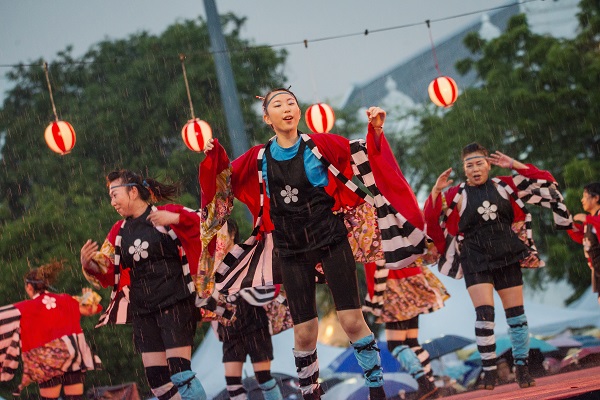Many of us have heard of the Bon Odori Festival that took place at the Panasonic National Sport Complex in Shah Alam, but do you know the history behind it?
Bon Odori refers to the traditional dances that are performed during the Obon festival. Bon Odori has a history of over 500 years and has become a festival that is celebrated nationwide in Japan and in various other parts of the world. The Bon Odori Festival in Malaysia has been popular for many years, but the festival that took place this year was by far the most popular, hosting over 50,000 participants.

Bon Odori is part of the Japanese Buddhist festival Obon, which commemorates the dead. The festival is based on a Buddhist text about a devout monk who released the spirit of his deceased mother from the Realm of Hungry Ghosts, causing him to dance in joy and celebration. One part of the festival includes participants dancing to celebrate their own lives, as well as to commemorate and honor those who have passed, which is the practice we refer to as Bon Odori. During the festival of Obon, participants also sweep the graves of their departed loved ones, give temple offerings, spend time with their family and display lanterns to guide the spirits to the other realm.

In Malaysia, Bon Odori has been celebrated annually every year since since 1977 – with the exception of 2020 and 2021, during which the festival had to be cancelled due to the Covid-19 pandemic. The festival is backed by the Japanese embassy, and is widely attended by both Japanese nationals and Malaysians. The festival has come to hold more meaning in Malaysia than its original purpose. It has become an opportunity for Japanese nationals to have a significant part of their culture and beliefs in the country they are residing in, allowing them to feel more at home and accepted. As for Malaysians, it has become an opportunity to explore Japanese culture and traditions as well as build relations.
Did you have a chance to go to Bon Odori Festival this year?

